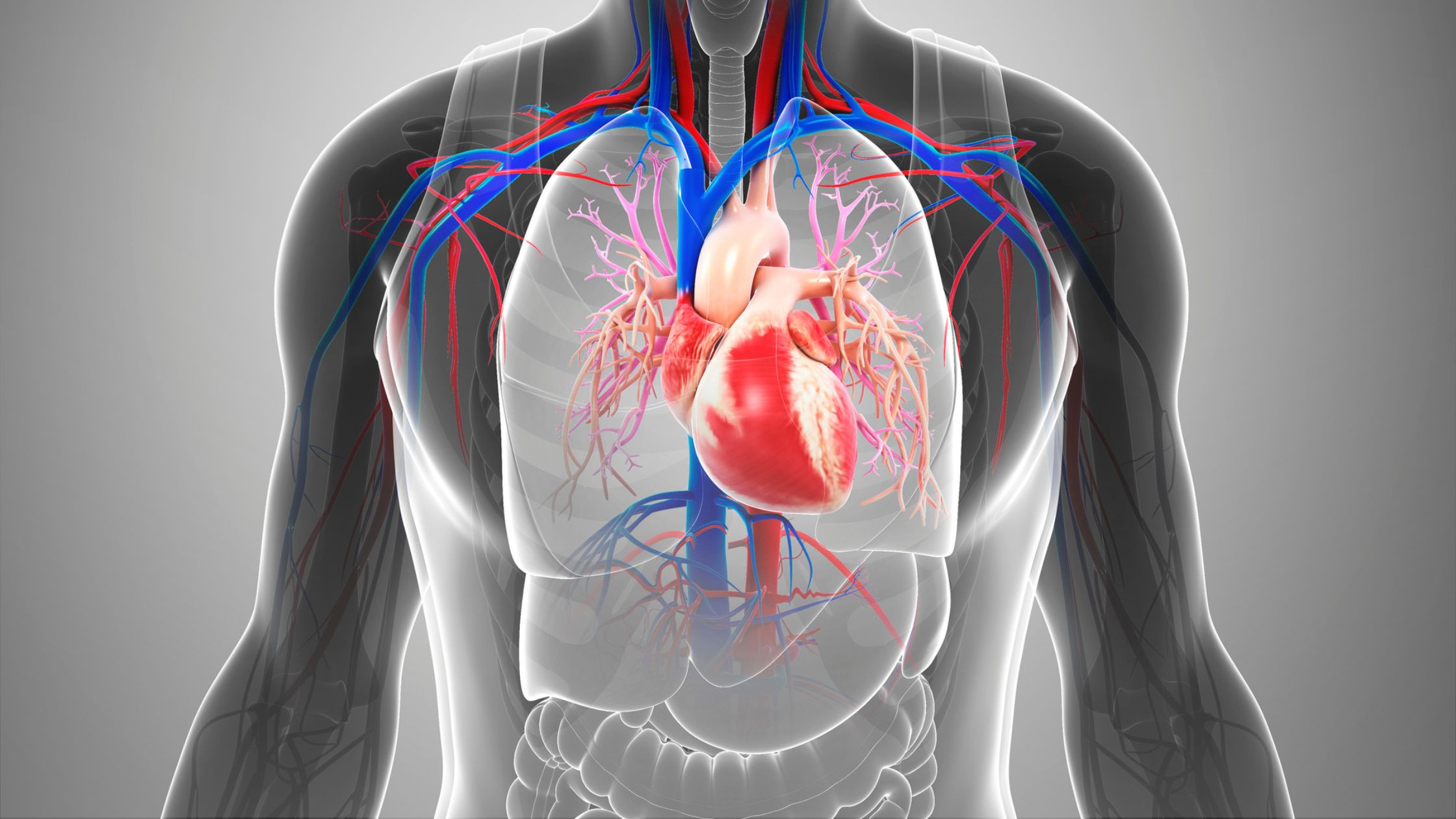Heart Disease – Your Most Frequent Questions Answered
Heart disease is a leading cause of death worldwide, affecting millions of individuals each year. It’s a condition that can significantly impact one’s quality of life, but with the right information and proactive measures, it is possible to manage and even prevent heart disease. This blog aims to address some of the most frequently asked questions about heart disease, offering insights and solutions to help you take charge of your heart health.
Section 1: Understanding Heart Disease
Q: What is heart disease?
Heart disease refers to a range of conditions that affect the heart. These include coronary artery disease, which is characterized by the narrowing or blockage of the coronary arteries; heart rhythm problems (arrhythmias); heart defects present at birth (congenital heart defects); and other conditions that affect the heart muscle, valves, or rhythm.
Q: What are the different types of heart disease?
- Coronary artery disease (CAD): The most common type of heart disease, caused by the buildup of plaque in the arteries that supply blood to the heart.
- Heart failure: A condition where the heart is unable to pump blood effectively, leading to symptoms like shortness of breath, fatigue, and fluid retention.
- Arrhythmias: Abnormal heart rhythms that can cause the heart to beat too fast, too slow, or irregularly.
- Congenital heart defects: Structural problems with the heart that are present at birth.
- Cardiomyopathy: Diseases of the heart muscle that make it harder for the heart to pump blood to the rest of the body.
- Peripheral artery disease: A condition where the arteries outside the heart, usually those supplying the legs, become narrowed or blocked.
Section 2: Symptoms and Causes
Q: What are the common symptoms of heart disease?
Common symptoms of heart disease can vary depending on the specific condition but often include chest pain or discomfort (angina), shortness of breath, palpitations (irregular heartbeats), fatigue, and dizziness. It’s important to recognize that symptoms can be different for men and women. For example, women are more likely to experience symptoms like nausea, indigestion, and back or jaw pain.
Q: What causes heart disease?
Heart disease can be caused by a combination of factors including:
- High blood pressure (hypertension): Damages the arteries and makes the heart work harder.
- High cholesterol: Leads to the buildup of plaque in the arteries.
- Smoking: Damages the lining of the arteries, raises blood pressure, and reduces the amount of oxygen in the blood.
- Diabetes: Increases the risk of heart disease by damaging blood vessels and the nerves that control the heart.
- Obesity: Increases the risk of high blood pressure, high cholesterol, and diabetes.
- Poor diet: Diets high in saturated fats, trans fats, cholesterol, and sodium can contribute to heart disease.
- Lack of exercise: Physical inactivity can lead to obesity and other risk factors for heart disease.
- Excessive alcohol use: Can raise blood pressure and contribute to heart failure.
Section 3: Prevention and Risk Reduction
Q: How can I reduce my risk of heart disease?
Reducing your risk of heart disease involves making healthy lifestyle choices and managing existing health conditions. Here are some steps you can take:
- Maintain a healthy diet: Focus on eating plenty of fruits, vegetables, whole grains, lean proteins, and healthy fats. Limit your intake of saturated fats, trans fats, cholesterol, sodium, and added sugars.
- Exercise regularly: Aim for at least 150 minutes of moderate-intensity exercise each week. This can include activities like walking, cycling, swimming, or jogging.
- Quit smoking: Smoking is a major risk factor for heart disease. Quitting smoking can significantly reduce your risk.
- Manage stress: Chronic stress can contribute to heart disease. Practice stress-reducing techniques such as yoga, meditation, or deep breathing exercises.
- Keep a healthy weight: Maintaining a healthy weight can reduce your risk of heart disease, high blood pressure, high cholesterol, and diabetes.
- Monitor blood pressure and cholesterol: Regular check-ups with your doctor to monitor and manage your blood pressure and cholesterol levels are essential for heart health.
Section 4: Diagnosis and Treatment
Q: How is heart disease diagnosed?
Diagnosis of heart disease typically involves a combination of medical history, physical exams, and various tests, including:
- Electrocardiogram (EKG): Measures the electrical activity of the heart and can detect irregularities.
- Echocardiogram: Uses sound waves to create images of the heart, showing its structure and function.
- Stress test: Measures the heart’s response to physical exertion.
- Cardiac catheterization: Involves threading a catheter through the blood vessels to the heart to diagnose and treat certain heart conditions.
- Blood tests: Can measure levels of certain substances in the blood that may indicate heart disease.
Q: What are the treatment options for heart disease?
Treatment options for heart disease vary based on the type and severity of the condition and can include:
- Lifestyle changes: Such as diet, exercise, and smoking cessation.
- Medications: Blood pressure drugs, cholesterol-lowering medications, anticoagulants, and other medications to manage symptoms and prevent complications.
- Medical procedures: Angioplasty (a procedure to open blocked arteries), stenting (placing a small mesh tube to keep an artery open), and bypass surgery (creating a new path for blood to flow to the heart).
- Surgery: In more severe cases, heart valve repair or replacement and heart transplant may be necessary.
Section 5: Managing Heart Disease
Q: Can heart disease be reversed?
While some damage from heart disease is irreversible, certain lifestyle changes and treatments can help manage the condition, improve symptoms, and prevent further damage. For example, eating a heart-healthy diet, exercising regularly, quitting smoking, and taking prescribed medications can help manage heart disease and reduce the risk of complications.
Q: Can stress contribute to heart disease?
Yes, chronic stress can increase your risk of heart disease. Effective stress management techniques, such as meditation, yoga, and deep breathing, can help.
Q: What role does diet play in managing heart disease?
A heart-healthy diet is crucial for managing heart disease. This includes:
- Eating plenty of fruits and vegetables: These are rich in vitamins, minerals, and antioxidants that promote heart health.
- Choosing whole grains: Whole grains are a good source of fiber, which can help reduce cholesterol levels.
- Selecting lean proteins: Opt for lean meats, poultry, fish, beans, and legumes.
- Including healthy fats: Focus on unsaturated fats found in olive oil, nuts, and avocados, and limit saturated and trans fats.
- Reducing sodium intake: High sodium intake can raise blood pressure, so it’s important to limit salt and processed foods.
Q: How important is exercise for heart health?
Regular physical activity is vital for heart health. Exercise helps strengthen the heart muscle, improve blood circulation, and maintain a healthy weight. It also helps reduce blood pressure, lower cholesterol levels, and manage stress. Aim for at least 150 minutes of moderate-intensity exercise each week, such as brisk walking, cycling, or swimming.
Q: Why are regular check-ups important?
Regular check-ups with your healthcare provider are essential for monitoring your heart health, managing risk factors, and catching any potential problems early. These visits can help ensure that your blood pressure, cholesterol levels, and other important health metrics are within a healthy range.
Section 6: Myths and Misconceptions
Q: What are some common myths about heart disease?
- Myth: Only older people get heart disease. Fact: Heart disease can affect individuals of all ages, including younger people, especially those with risk factors like obesity, smoking, or a family history of heart disease.
- Myth: Heart disease is more of a problem for men than women. Fact: Heart disease is the leading cause of death for both men and women, though symptoms can present differently in women. Women may experience symptoms such as nausea, indigestion, and back or jaw pain, rather than classic chest pain.
- Myth: If you have heart disease, you should avoid exercise. Fact: Regular, moderate exercise is beneficial and recommended for most people with heart disease. However, it’s important to consult with your doctor before starting any new exercise regimen.
- Myth: I’ll know if I have high blood pressure or high cholesterol because of symptoms. Fact: High blood pressure and high cholesterol often have no symptoms, which is why regular screenings are essential to detect and manage these conditions.
Section 7: Special Considerations
Q: How does genetics impact heart disease?
Genetics can play a significant role in heart disease. If you have a family history of heart disease, your risk may be higher. However, lifestyle changes, such as maintaining a healthy diet, exercising regularly, and avoiding smoking, can still greatly impact your heart health and reduce your risk.
Q: Are there differences in heart disease between men and women?
Yes, there are differences in how heart disease affects men and women. Women are more likely to experience different symptoms, such as nausea, fatigue, and pain in the back or jaw, rather than the classic chest pain. Hormonal factors also play a role in heart disease risk for women, especially after menopause.
Q: Can young people get heart disease?
Yes, heart disease can affect individuals of all ages. Factors such as obesity, smoking, genetic conditions, and poor lifestyle choices can increase the risk of heart disease in younger populations. It’s important for young people to adopt heart-healthy habits early to prevent heart disease later in life.
Section 8: Recognizing and Responding to Emergencies
Q: What are the warning signs of a heart attack?
Warning signs of a heart attack include:
- Chest pain or discomfort
- Pain or discomfort in the arms, back, neck, jaw, or stomach
- Shortness of breath
- Nausea, lightheadedness, or cold sweats If you or someone else experiences these symptoms, it’s important to seek medical attention immediately.
Q: What should I do if I suspect a heart attack?
If you suspect a heart attack, call emergency services immediately. While waiting for help to arrive, you can help the person by:
- Keeping them calm and seated or lying down
- Giving them aspirin if they are not allergic, as it can help reduce blood clotting
- Monitoring their condition and being prepared to perform CPR if necessary
Q: How can I support someone with heart disease?
Supporting someone with heart disease involves providing emotional support, helping them make healthy lifestyle changes, and encouraging them to follow their treatment plan. You can also educate yourself about their condition and join them in heart-healthy activities like exercising and eating a balanced diet.
Conclusion
Heart disease is a serious but manageable condition. By understanding the causes, symptoms, and treatment options, you can take proactive steps to protect your heart health. Remember, making lifestyle changes, staying informed, and working closely with your healthcare provider are key to preventing and managing heart disease. Prioritize your heart health today for a healthier tomorrow.
If you have any more questions or concerns about heart disease, feel free to contact your healthcare provider or a heart health specialist. Your heart deserves the best care, so take action now to ensure a long and healthy life.



